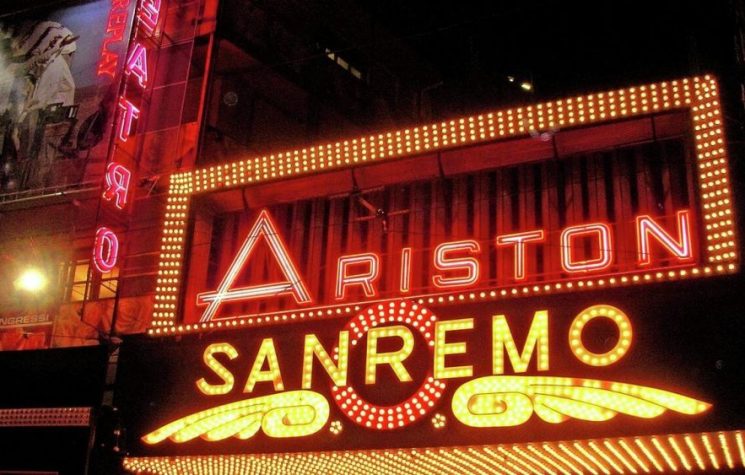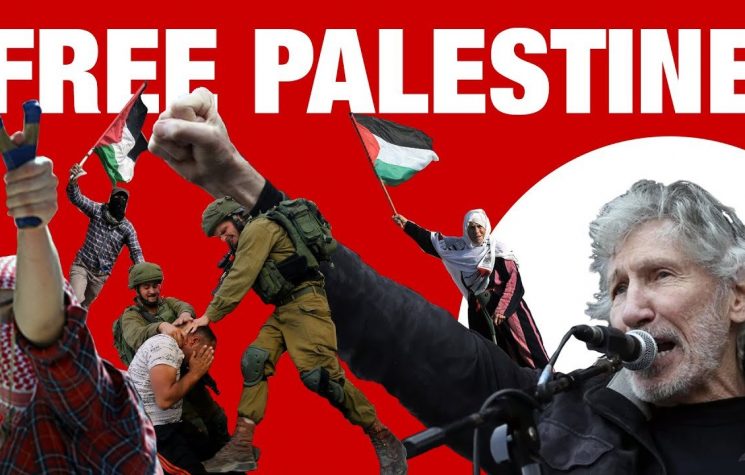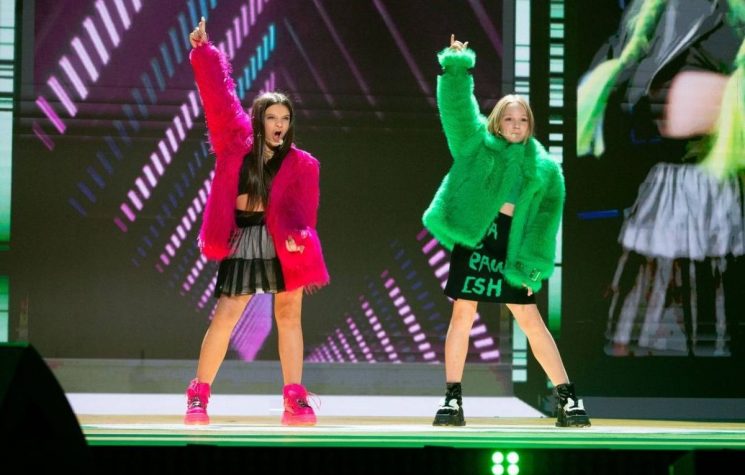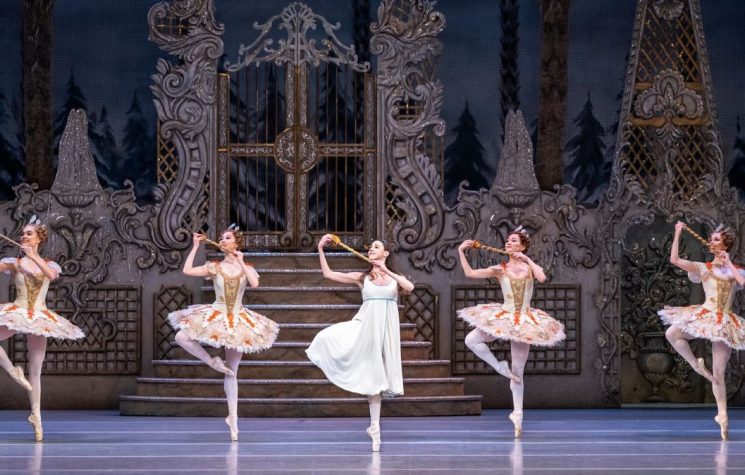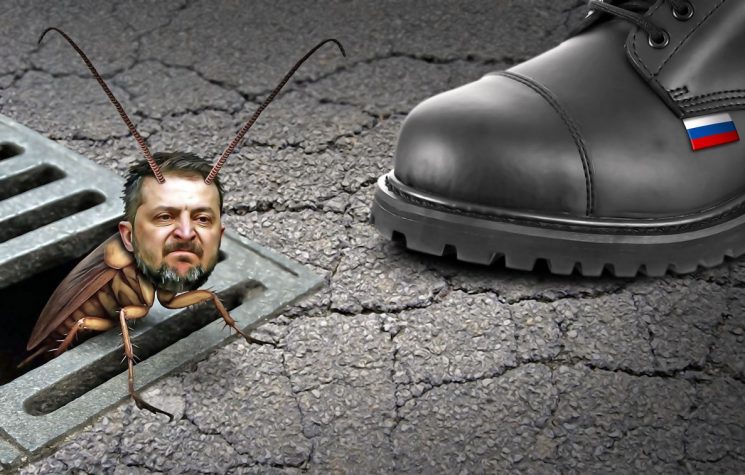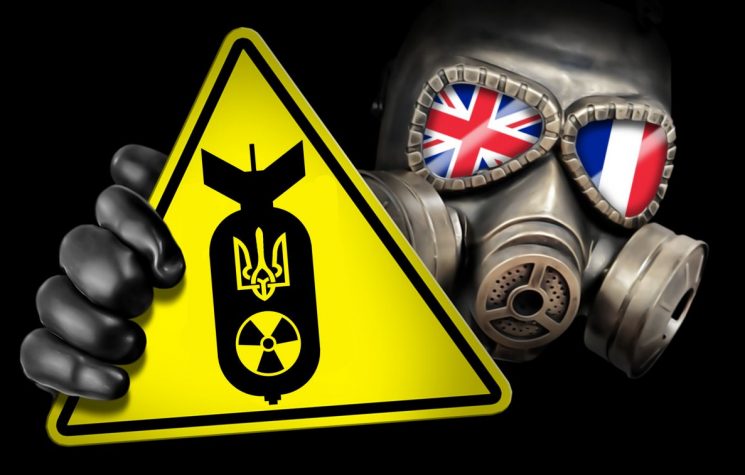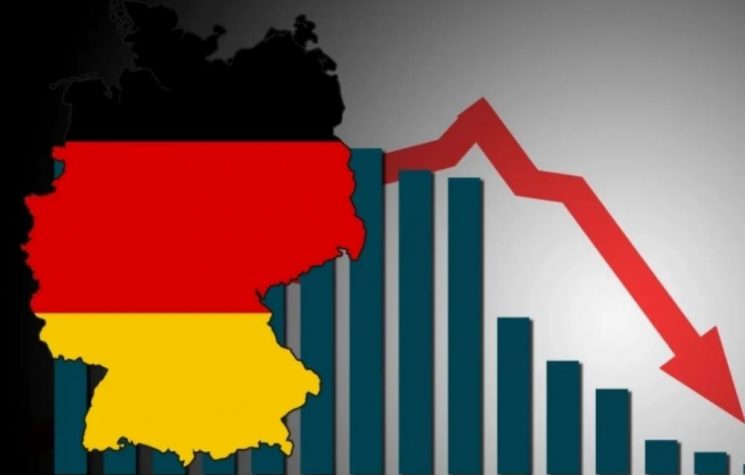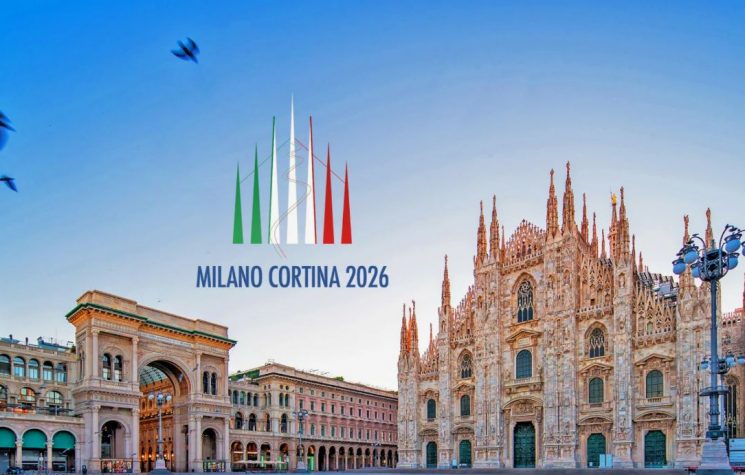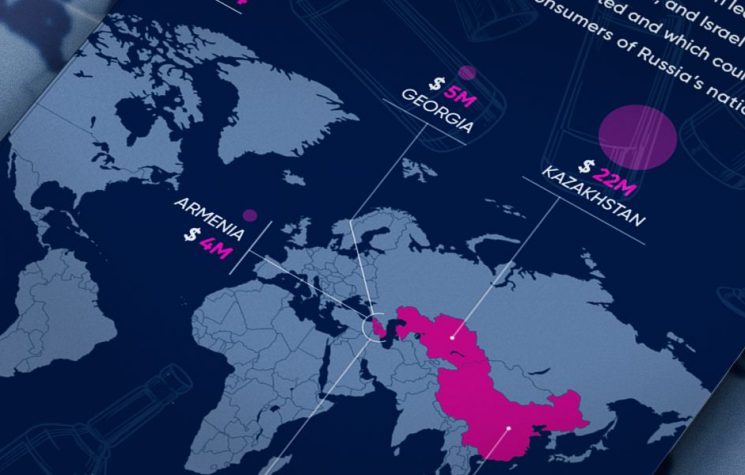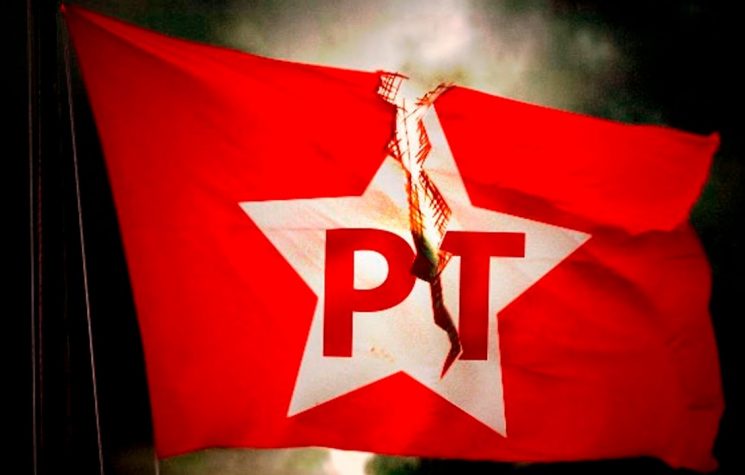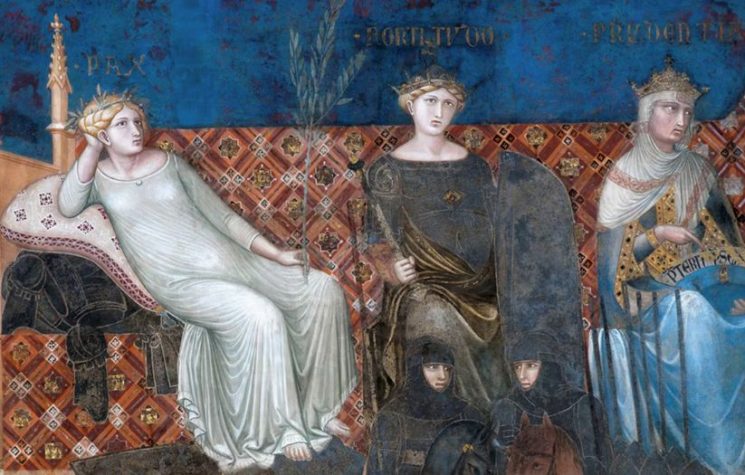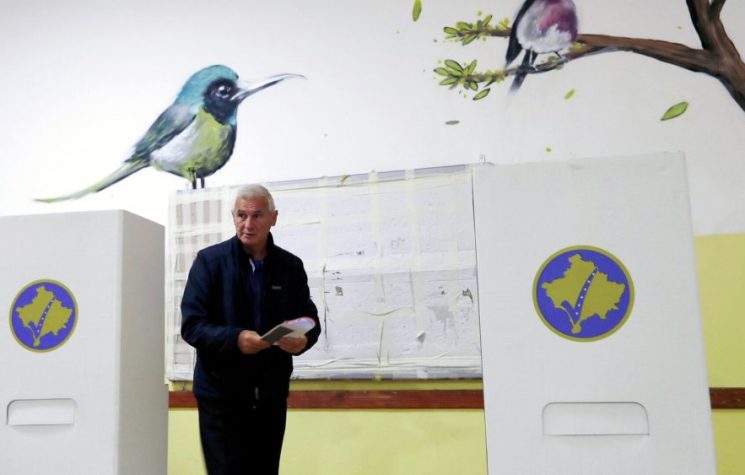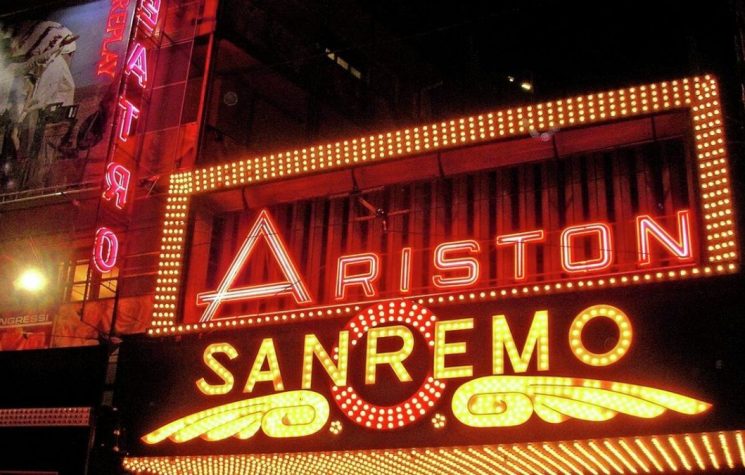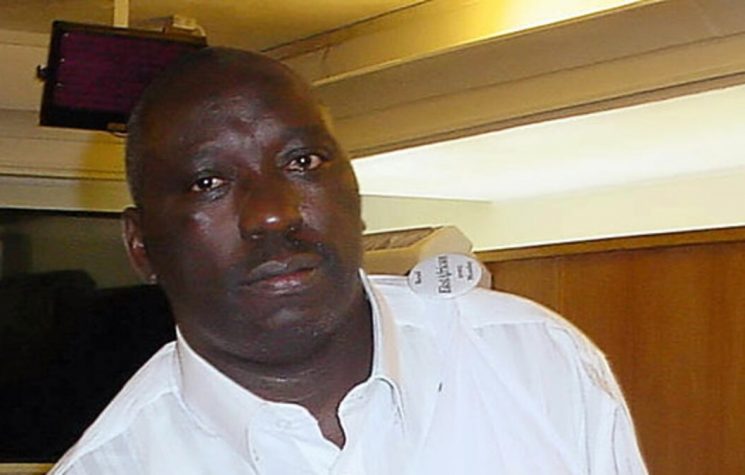Instead of giving these young women vacuous teenage love crushes as most Western rock singers do, Shaman is instilling true pride and confidence in and of themselves.
The chorus of Ya Russkiy, I am Russian, sung here by these beautiful young Russians has, to date, racked up in excess of 8 million views for a number of important reasons that form the core of this article.
First off, the women, whose red ribbons indicate they may be members of the youth wing of the Russian Communist Party, all possess in abundance the beauty, confidence and unbridled comradeship of youth. Coupled with that, there are their varying choices of dress, which tell their own important stories regarding NATO’s failed sanctions policy on Russia. And then there are the lyrics and the heartthrob who sings them.
Though there is much to unpack in this short video clip, let’s begin with Shaman, aka Yaroslav Dronov, the Russian singer-songwriter and music producer, whose good looks and great talent have helped to propel Ya Russkiy into currently being Russia’s most popular song, with this version having 37 million youtube hits so far, not that far behind his earlier “Rise Up” (Russian: Встанем; romanized: Vstanem) hit, which was dedicated to the war heroes of Russia’s Great Patriotic War.
Though Rise Up and Ya Russkiy have broadly similar themes, the latter song is the more pertinent not only to this article but to the young women confidently and majestically singing along to it. Ya Russkiy states, in its catchy little way, that “I am Russian”, happy and proud in my own skin with it and the world can like it or lump it.
The greater relevance of those lines is that, instead of giving these young women vacuous teenage love crushes as most Western rock singers do, Shaman is instilling true pride and confidence in and of themselves into those women who, as the song has it, “just want to love and to breathe”, who are Russkiys and who don’t care what others think of them and their common homeland.
Although many of the thousands of online comments to the video clip attested to how fit those young Russians looked thanks to the sanctions Coca Cola and Ronald MacDonald imposed on Russkiy Land, it is, to me at least, much more preferable to have young Russians singing about being proud of being themselves rather than have them aping New York’s teens who seem obsessed with far darker things.
Not everyone, of course, sees things with my objective eyes and the usual suspects weighed in on how those young Communists were all fascists, apprentices to what MI5’s Daily Telegraph smeared as Putin’s Lipstick Army which, that misogynistic rag informed us, is fronted by Armenian Margarita Simonyan and Foreign Affairs spokesperson Maria Zakharova, whom those plummy-accented xenophobes smear as Putin’s “troll-in-chief”.
Though they are the bane of MI5, Zakharova and Russia Today’s Simonyan are no such things. They are successful, professional women who have risen up the ranks on account of their abilities and, sad to say for MI5, with other folk like Shaman, they are inspiring tens of thousands of these confident young Russian women to likewise aspire for the stars.
All of which leads us to the sartorial choices of these young stunners, no two of whom seem to be similarly attired and none of whom, thankfully, seem to be influenced by the rubbish that currently blights the catwalks of Milan and Paris. My hope here would be that, thanks to NATO’s sanctions, Russian fashion will break free of the fetters that bind it to those catwalks and to the great industrial powerhouses of Germany and Switzerland that stand behind them.
The fashion industry is a high risk one where the latest craze is planned years in advance so that the Swiss and German cotton and dye factories can produce the current season’s in-colours to cash in on the season’s carefully induced latest craze. Allied to that, influencers, fashion magazines and the like must be prepared to pounce so that shelves are cleared to make way for the following season’s wares.
Like the late Princess Diana before her, Kate Middleton, Prince William’s wife, has been an invaluable coat hanger in that regard. Whenever she and even Princess Charlotte, her little daughter, appear in public, the paparazzi jump into action and the Daily Mail tells us where we can buy clothing identical to what they wear and for how much. Although the two Princesses are amongst NATO’s most valuable fashion models, NATOstan is full of such social influencers and good look to them as, according to this McKinsey report which focuses in on disruptions to the fashion industry caused by the Ukrainian war, NATOstan’s fashion industry is so heavily dependent on them.
And not just with clothing but with perfumes, and other luxury goods as well. The global perfume market is worth some $50 bn a year and, if Russia were to use all the perfumes of Arabia, and especially of Syria where perfume making has been a staple since the Queen of Sheba’s time, it could be curtains for the behemoths of France and Italy.
Much the same applies to the entire $360 billion luxury goods market, which is overly dependent on the Japanese and Chinese consumer markets. Although the Japanese can easily replicate Louis Vuitton bags to such a degree that Louis Vuitton cannot even tell the difference between the genuine article and a high-end Japanese fake, they lack the social influencers to go head to head with Kate Middleton, Princess Charlotte and the Kardashian tribe.
If we switch our focus back to those young Russian women, we can all agree that whatever Shaman would endorse would be good enough for them and, if all of Russia’s Shamans endorsed Russian, Japanese or Korean luxury goods products, it would be arrivederci to Gucci and au revoir to L’Oréal.
Bad news, perhaps for NATO’s conglomerates but good news for Russians and those allied with them. Korea and Japan are especially relevant here as their J-pop and K-pop, together with their fashions have long taken the Asian world by storm and the Japanese have a long tradition, stretching back to the Tokugawa shogunate, with weaving magical creations from all kinds of fabrics. Add the creative aspirations of a few hundred million Chinese and you have the makings of the mother of all markets.
Also factor into that mix that Amazon and allied online behemoths are cornering NATO’s retail markets and the musicians, designers and perfumers of Russia, Asia and the Arab world should cock their ears up and take notice of what those dancing Russian women mean for all of them.
Here in Ireland, the Ukrainian mafia have decreed that exports of Jameson’s whiskey to Russia must be stopped, meaning that the hard-pressed Russians will have to get by with drinking their own huge range of wines and spirits. In England, Chinese students pay fortunes for fashionable blouses that have nothing beyond a Princess Charlotte imprimatur to justify their hefty price tags. Back home in the Middle Kingdom, Coca Cola are trying to get them to switch from drinking green tea with their meals to swigging down their calorie-rich gruel, like Americans and NATO’s other captive human elephants do.
Such are our commercial wheels of life that Putin’s Emerging Lipstick Army is disrupting by singing their hearts out that Ya Russkiy, that they are Russian, and so will be everything that is not Asian or African that they buy, listen to or dance to.










